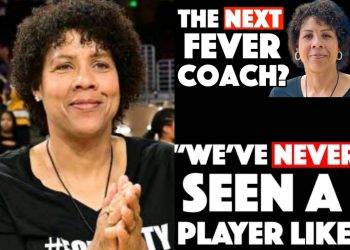For many sports fans, basketball is far more than a game — it’s a global language that unites cultures, generations, and continents. This truth came alive for me, a University of Miami (UM) student studying abroad in Bahrain, when I had the chance to attend the recent FIBA Hall of Fame induction ceremony held in Manama.
When people think of basketball powerhouses, Bahrain rarely tops the list. Yet the Kingdom’s growing investment in sports, especially basketball, has turned it into an unexpected hub for international events. This year’s FIBA Hall of Fame ceremony was proof of that transformation.
Walking into the gleaming Bahrain National Stadium complex that evening, I felt both out of place and right at home. I’m used to Hurricanes football games and the Watsco Center buzzing during ACC matchups — but here I was, thousands of miles away, surrounded by fans in traditional Bahraini dress, youth players in club jerseys, and dignitaries from around the world.
The ceremony itself was a reminder of how universal basketball has become. Legends from different eras and continents were honored — from European tacticians to South American sharpshooters and African pioneers. Seeing these icons celebrated in Bahrain was surreal. For many locals, this was a once-in-a-lifetime opportunity to see their heroes up close. For me, it was a powerful lesson about basketball’s ability to bridge divides.
One highlight was the induction speech of a former FIBA champion who spoke about how the sport gave him “a passport to the world.” Sitting there, I realized that’s exactly what basketball is doing for Bahrain. The country is strategically using global events like this to build its reputation as a serious sports destination. They’ve already hosted major FIBA qualifiers, Gulf leagues, and training camps for regional youth teams.
After the official ceremony, I got to mingle with Bahraini students my age, many of whom play in local leagues or aspire to coach someday. They were eager to hear about college basketball in the U.S. — the packed stadiums, March Madness, the campus culture. In turn, they told me about the local scene: small but dedicated clubs, new training facilities, and a push to get more kids — especially girls — into the game.
It struck me how much potential there is here. Basketball is still overshadowed by football (soccer) in the Gulf, but that’s changing as more schools invest in proper courts and coaching. Some Bahraini players even dream of earning scholarships abroad — maybe even at UM someday.
Being at the FIBA Hall of Fame ceremony also reminded me of how sports can tell stories that textbooks and lectures can’t. As a student of international relations, I’ve sat through countless classes on “soft power” and cultural diplomacy. But here, I could actually see it in action: a small island nation using basketball to put itself on the global map, build friendships, and inspire its youth.
Of course, the night wasn’t just about big ideas. There were moments of pure fan joy — autograph lines that stretched for hours, kids dribbling balls down the hallways, and a dazzling halftime show that blended Bahraini folk dance with modern streetball tricks. Even the food trucks outside served a mix of local snacks and American-style burgers — a literal taste of East meets West.
When I got back to my dorm that night, I found myself replaying the speeches and the cheers in my head. I thought about my own journey with basketball — the late nights at the campus rec center, cheering courtside for the ‘Canes, even arguing stats with my friends. And here I was, halfway around the world, feeling that same connection in an unexpected place.
In the end, this trip reminded me that basketball’s future is global — and students like me have a front-row seat. Whether it’s Miami or Manama, hardwood courts have a way of bringing people together. I came here to study, but thanks to FIBA and Bahrain, I left with a deeper respect for how a simple game can break barriers and build bridges,
one basket at a time.











